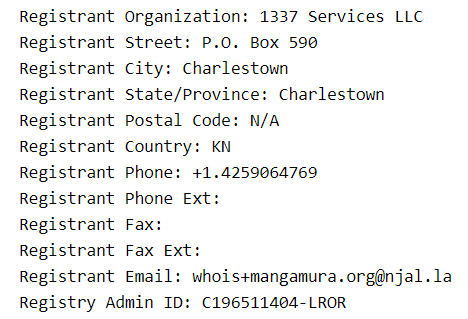After many years of targeting people who share larger volumes of content on peer-to-peer file-sharing apps and services, Japan is now taking aim at pirate sites.
In basic terms, rightsholders would like to see overseas pirate sites blocked by local ISPs, in much the same way as they are in dozens of countries elsewhere in the world. However, the process is proving a difficult one to move forward, as interference with communications is viewed by many as an invasion of users’ browsing privacy.
The Japanese Government is currently attempting a review on piracy measures for the Internet and has requested input from rightsholders and other interested parties. That’s resulted in a submission from CODA (Content Overseas Distribution Association), an anti-piracy coalition featuring major video, publishing, and software organizations.
“Infringement of rights occurs across national boundaries due to the development of the Internet, and the identification of infringers is extremely difficult. The response to this is extremely difficult and we believe that there are limits under the existing laws of Japan, and new initiatives are necessary,” CODA writes in a submission seen by TF.
Noting that criminal complaints and other measures against several targeted ‘pirate’ have proven ineffective, CODA says it is being hindered by online services that help to keep operators anonymous.
So-called “bulletproof” hosters that ignore copyright law are highlighted first. These providers have policies in place to protect their customers, often ignoring takedown notices filed under the DMCA while hiding identities of site operators. Bulletproof hosters were described as an emerging threat by the RIAA recently.
CODA also complains about domain privacy services which allow domain registrants to hide their identities from prying eyes. One such service, Njalla, which was launched by Pirate Bay co-founder Peter Sunde last year, is singled out for criticism.
“[S]ervices such as offshore hosting / bulletproof hosting that ignore the DMCA and domain registry services selling complete anonymity are rampant. It is now clear that [pirate site] ‘Mangamura’ was also using Njalla,” CODA adds.
Mangamura was a huge pirate manga site that apparently shut itself down last April. In the last few months of its life alone, the site was accessed well over half a billion times. This led to Toyko-based Kodansha, Japan’s largest publisher, to file a criminal complaint against the platform. CODA estimates that Mangamura caused losses amounting to US$2.9 billion.
Given the specific mention in the submission, it seems likely that Mangamura’s use of Njalla caused problems for rightsholders and/or investigators. Njalla helps to keep the registration details of domain names private by registering domains in its own name (holding company 1337 Services LLC), not the customer’s, meaning that the owner of Mangamura should be harder to trace.
An agreement allows the customer to use Njalla-registered domains however they like (as long as it doesn’t hurt someone’s “health or safety”) and they are able to take domains back or transfer them at any time. In the meantime, they are shielded from third-parties discovering who is really behind their domains.
TorrentFreak asked Njalla whether they’ve ever had any complaints about Mangamura’s registration but at the time of publication, the service was yet to respond. However, one only has to read a sample of the company’s interactions with content company lawyers to see how it sometimes responds.
In the meantime, CODA continues to push its case to introduce blocking mechanisms in Japan. This wouldn’t solve the anonymity problem posed by bulletproof hosters and services like Njalla, but having ‘pirate’ sites rendered inaccessible in the country would certainly help.
That being said, things are not going smoothly.
According to a report published by Mainichi, a panel of government experts has been unable to compile an interim report on measures against pirate sites due to disagreements over the suitability of site blocking.
While rightsholders believe the practice should be implemented as soon as possible, there are serious concerns that blocking violates the country’s constitution.
“There are strong misgivings among many of the panel members who specialize in law that blocking is unconstitutional, and it’s unacceptable,” said Ryoji Mori, a lawyer on the panel.
On Wednesday, nine panel members opposed to blocking issued a statement, insisting that legislation “should be deferred and cooperation sought with the private sector to advance measures other than blocking.”
Those measures are said to include restriction of advertising on ‘pirate’ sites to hit revenues, plus further cooperation between content creators and the telecoms industry. Several ISPs in Japan currently block several ‘pirate’ sites voluntarily.


 After many years of targeting people who share larger volumes of content on peer-to-peer file-sharing apps and services, Japan is now taking aim at pirate sites.
After many years of targeting people who share larger volumes of content on peer-to-peer file-sharing apps and services, Japan is now taking aim at pirate sites.




